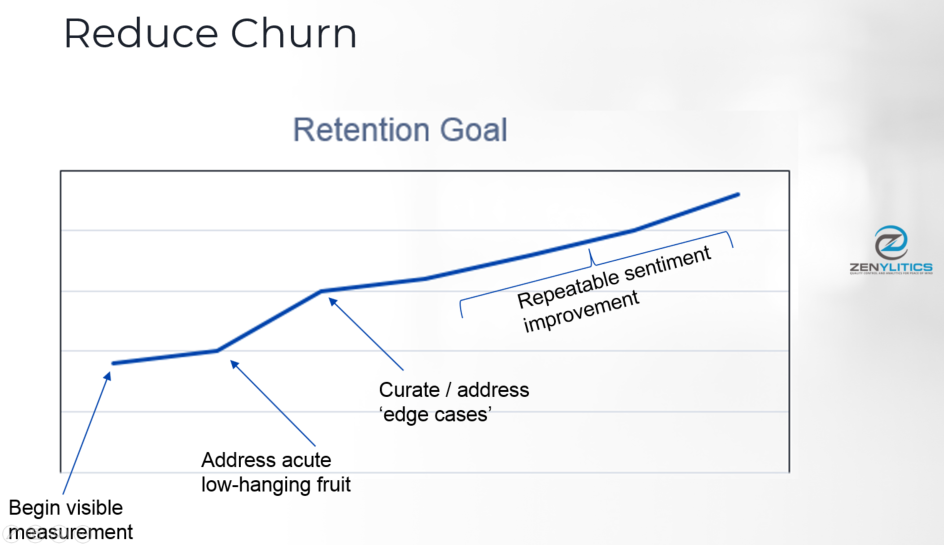7 Agent Adoption Tips For Your Speech Analytics Program
Speech analytics programs should deliver initial results within 90 days. How you on board your agents can impact how quickly you see results in yours. Here are 7 tips for driving agent adoption in your speech analytics program.
Focus your initial efforts
Clarify the quick wins you want to achieve. It is easy to go for too much at the outset, so start by choosing two or three high-impact areas to address as ‘low-hanging fruit.’ Educate agents on those behaviors so they can focus their efforts. This will generate quick wins, thus speeding acceptance and agent adoption.
Put the emphasis on positive change
Be sure to set goals for positive new behaviors. Measure them. Focusing solely on agent mistakes can become a trap that hinders agent adoption. Avoid falling into the “Big Brother” trap where agents can only lose in a world where every interaction is observed.
Establish a baseline with historical data
If possible, process a few months of historical calls. Except for illegal or unethical behaviors, don’t hold those results against your agents. Instead, use this data to build aggregate baselines for the measures you most care about. This will help you position early coaching sessions as wins. Because agents often improve their performance once they know the speech analytics program is in place, the first measures of the new program are likely to be better than what came before. Therefore, use historical data as your baseline and you increase the chance that early results will be positive.

Example ‘Reduce Churn’ Speech analytics ROI curve
Coach diplomatically
Speech analytics lets you curate every single call. Processing every single call reveals unflattering moments for even the best agents. Focus attention on positive progress as well as where it might be lacking. This increases the chance of agent acceptance. Better acceptance leads to faster adoption.
Remove the mystery
Speech analytics software can be shrouded in mystery. Agents may be suspicious that the results are not valid for them or that the AI judges them unfairly. So don’t be afraid to share “how the sausage is made” to build trust. Discuss how the scoring works. Elicit input from your agents on how you can remove roadblocks that make their job more challenging. Let your group know that you are tuning the tool and that this is an ongoing and iterative process.
Don’t jump to conclusions
Speech analytics programs require tuning. Tuning reduces ‘false positive’ hits and identifies missing relevant behaviors. Don’t damage the credibility of your program by accepting initial scores as gospel. Be prepared to refine your scorecards. Gradually build confidence by vetting both the highest and lowest scoring calls and, when necessary, refine how key behaviors are scored.
Communicate regularly
Agent adoption is a key success factor for speech analytics programs. How you communicate about your program is paramount to successful adoption. Because everyone will be learning at the start, keep your team current with project updates. For instance, collaborate regarding insights from the data and success stories. Share fresh insights into customer experience. This will help speech analytics become a positive part of an agent’s work life and help engender a culture of trust and mutual discovery.

